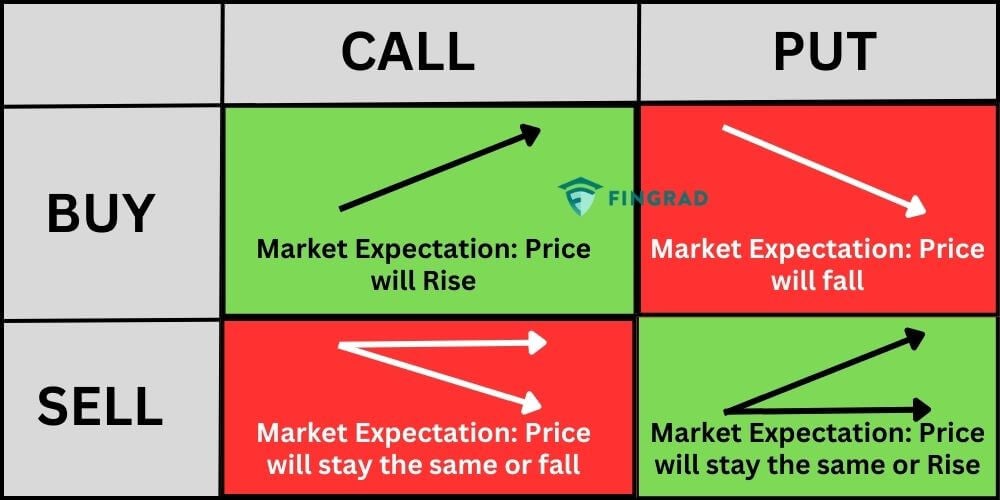In the dynamic world of finance, options trading has emerged as a sophisticated strategy that empowers investors to leverage their market insights into lucrative opportunities. Whether you’re a seasoned trader or a novice eager to explore the complexities of financial markets, this comprehensive guide will provide you with the essential knowledge to navigate the world of options trading. By understanding the mechanics, strategies, and risks involved, you can harness this powerful tool to enhance your investment portfolio and potentially reap significant rewards.

Image: tradebrains.in
Delving into the Realm of Options Trading
Options trading involves contracts that grant the holder the right, but not the obligation, to buy or sell an underlying asset at a predetermined price within a specified timeframe. These contracts provide investors with flexibility and the potential for significant returns compared to traditional investment methods. They offer a myriad of strategies tailored to diverse risk appetites and market conditions, from conservative hedging strategies to speculative bets on market movements.
Understanding Option Contracts
At the heart of options trading lies the option contract, which outlines the terms and conditions of the agreement between the buyer and seller of the option. Key elements include:
-
Option Type: Calls and puts are the two primary option types. Calls grant the buyer the right to purchase the underlying asset at the designated strike price, while puts provide the option to sell.
-
Strike Price: This is the price at which the buyer can exercise the option to buy or sell the underlying asset.
-
Expiration Date: Options contracts have a finite lifespan, denoted by the expiration date, beyond which they become worthless.
-
Premium: The price paid by the option buyer to acquire the option contract, representing the upfront cost associated with the transaction.
The Mechanisms of Options Trading
Options trading entails buying or selling option contracts with other market participants. Options buyers acquire contracts that align with their market expectations, while sellers grant those rights in exchange for the premium received. Buyers can exercise their option rights to purchase or sell the underlying asset at the strike price before the expiration date, while sellers may be obligated to fulfill the contract if it is exercised.

Image: eaglesinvestors.com
Exploring Popular Options Trading Strategies
The versatility of options trading allows for a wide range of strategies to suit diverse investment objectives and risk profiles. Some popular approaches include:
-
Covered Call: This strategy involves selling call options against underlying shares you own, generating premium income while maintaining exposure to the underlying asset.
-
Protective Put: This strategy entails purchasing put options to protect against potential losses on an existing stock position.
-
Iron Condor: An advanced multi-leg strategy involving the simultaneous sale of out-of-the-money call and put options with different strike prices.
-
Straddle: Simultaneously buying both a call and a put option with the same strike price and expiration date, anticipating significant market volatility.
Unveiling the Risks Associated with Options Trading
As with any investment endeavor, options trading carries inherent risks. Understanding these risks is paramount to making informed decisions:
-
Time Decay: The value of options contracts decays over time, especially as the expiration date approaches.
-
Volatility Risk: The magnitude of price fluctuations in the underlying asset can significantly impact option values.
-
Counterparty Risk: Options contracts are subject to the creditworthiness of the counterparty involved in the transaction.
-
Liquidity Risk: Certain options contracts may have limited liquidity, making it challenging to enter or exit positions promptly.
Empowering Investors with Expert Insights
Navigating the complexities of options trading benefits greatly from the guidance of experienced professionals. Here’s how experts can contribute to your trading journey:
-
Providing Market Analysis: Market experts offer valuable insights into market trends, potential opportunities, and risk factors to inform your investment decisions.
-
Sharing Trading Strategies: Seasoned traders can impart their strategic knowledge, including successful options trading methodologies, risk management techniques, and portfolio allocation strategies.
-
Leveraging Technical Tools: Expert traders often employ advanced technical analysis tools and proprietary algorithms to enhance their decision-making process. They can provide guidance on interpreting charts, identifying patterns, and utilizing technical indicators.
For Options Trading

Image: www.closeoption.com
Actionable Tips for Effective Options Trading
To achieve success in options trading, consider these actionable tips:
-
Educate Yourself: Thoroughly research options trading concepts, strategies, and risk factors before committing capital.
-
Start Small: Begin with small trades to gain practical experience and minimize potential losses.
-
Manage Risk: Implement prudent risk management practices, including setting stop-loss orders and limiting your position size.
-
Monitor Your Trades: Regularly track your open positions and underlying asset price movements to make timely adjustments.
-
Seek Professional Guidance: Don’t hesitate to consult with a reputable financial advisor or experiencedoptions trader for personalized guidance and support.






